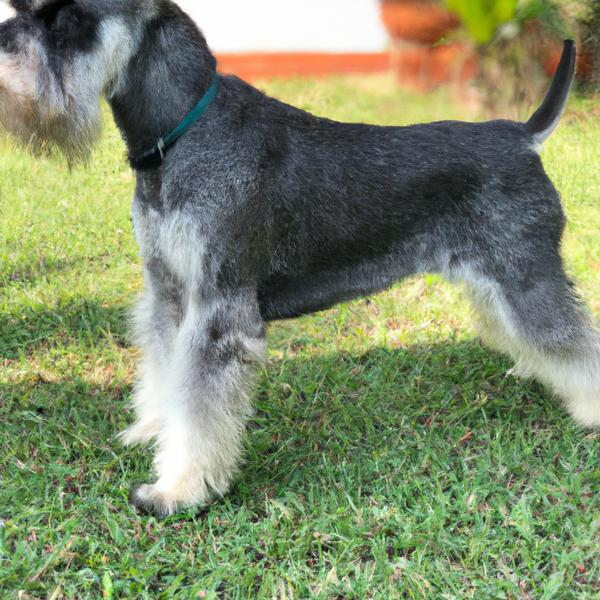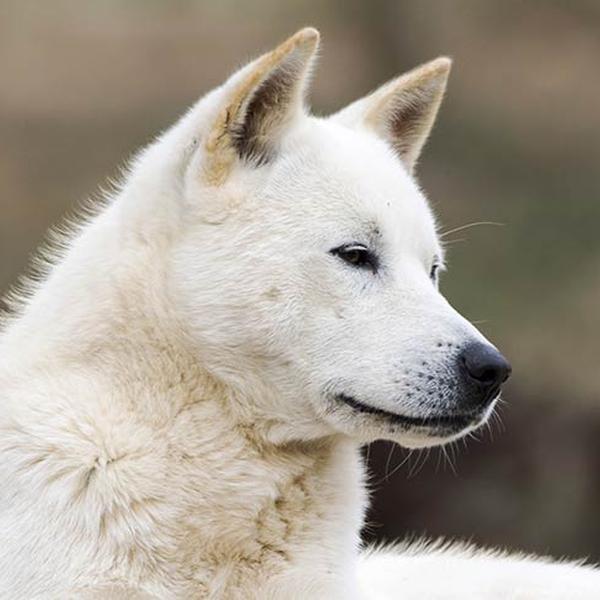Rat-Cha vs. Boxmatian: Breed Differences and Similarities
Hypoallergenic
Are Rat-Chas or Boxmatians hypoallergenic, or neither?
Unfortunately, neither Rat-Cha nor Boxmatian are hypoallergenic, which may not make them the best choice for dog lovers who suffer from pet allergies.
Temperament
What are the personalities of Rat-Cha and Boxmatian dogs?
Loving
Alert
Courageous
Intelligent
Affectionate
Quick
Devoted
Lively
Inquisitive
Playful
Goofy
Protective
Willing
Shedding Level
Do Rat-Chas shed more than Boxmatians, or which breed sheds more, Rat-Chas or Boxmatians?
Rat-Cha or Boxmatian dogs are not heavy shedders, but they will lose a significant amount of hair each year. To decrease the amount of shedding, you can regularly brush your Rat-Cha or Boxmatian. This will remove loose hair and keep their coat growing in the same direction.
Watchdog Ability
Which dog breed makes a better watchdog, the Rat-Cha or Boxmatian?
The Rat-Cha and Boxmatian dogs are average watchdogs. If they sense something different, these breeds will alert their owner.
Origin
What is the origin of Rat-Cha and Boxmatian dog breeds?
United States
Europe
Ancestry
What are the origins of Rat-Cha and Boxmatian breeds?
Chihuahua, Rat Terrier
Boxer and Dalmatian
Breed recognition
Which kennel clubs recognize/register Rat-Cha and Boxmatian?
ACHC = American Canine Hybrid Club
DDKC = Designer Dogs Kennel Club
DRA = Dog Registry of America, Inc.
IDCR = International Designer Canine Registry®
Designer Breed Registry
Designer Canine Registry
Date of Birth
When were Rat-Cha and Boxmatian breeds first developed?
Unknown
Eye Color Possibilites
What are the eye colors of Rat-Cha and Boxmatian dogs?
Brown
Brown
Nose Color Possibilites
What are the natural nose colors of Rat-Cha and Boxmatian?
Black
Black
Coat Color Possibilites
What are the natural colors of the coat for Rat-Cha and Boxmatian breeds?
Brown
Red
Fawn
Sable
Gray
Black
White
White
Black
Pied
Coat Length
What is the typical coat length for Rat-Cha and Boxmatian breeds?
The coat of Rat-Cha and Boxmatian dogs ranges in length from short to medium.
Coat Density
What is the density of the coat of Rat-Cha and Boxmatian?
Coat Texture
What is the hair texture of Rat-Cha and Boxmatian?
Straight
Litter Size
What is the usual litter size for Rat-Cha and Boxmatian?
A Rat-Cha can have a litter of 5-7 puppies on average. However, it's worth noting that the size of the litters can vary greatly. Factors that can influence litter size include the health of the mother, breeding history, and genetics.
A Boxmatian can have a litter of 10-13 puppies on average. However, it's worth noting that the size of the litters can vary greatly. Factors that can influence litter size include the health of the mother, breeding history, and genetics.
Adaptability
Rat-Chas are highly adaptable and versatile, making them excellent companions for families and individuals of all lifestyles.
Boxmatians struggle with new environments and lifestyle changes, preferring familiarity.
Health Issues
Between Rat-Cha and Boxmatian, which breed is more prone to health problems?
Rat-Chas typically have low vet costs due to their good health, but it's important to monitor their health and seek vet care when necessary.
The Boxmatian breed is generally very healthy, requiring minimal vet visits. Still, it's important to keep an eye on their health and seek veterinary care when needed.
Major Concerns
What are the major health concerns for Rat-Cha and Boxmatian breeds?
Hip Dysplasia
Hydrocephalus
Patent Ductus Arteriosis (PDA)
Collapsed Trachea
Atopy
Usually Very Healthy
Minor Concerns
What minor health issues should be kept in mind when owning Rat-Cha and Boxmatian?
Patellar Luxation
Cataracts
Glaucoma
Dental Disease
Alopecia
Legg-Calve Perthes Disease
Progressive Retinal Atrophy (PRA)
Hypothyroidism
Occasional Tests
What occasional tests are recommended for Rat-Cha and Boxmatian breeds?
X-Rays
Eye Examination
Skin Evaluation
Radiographs
Full Physical Examination
Blood Sugar and Thyroid Tests
Physical Examination
Allergy Tests
Complete Blood Count
Energy
How do the energy levels of Rat-Chas and Boxmatians compare?
Rat-Chas are suitable for those with a balanced lifestyle as they have an average energy level.
Boxmatians thrive on an active lifestyle due to their high-energy nature.
Social Needs
Rat-Cha vs Boxmatian social needs comparison
Rat-Cha has very high social needs and requires regular mental and physical stimulation, a job or purpose, and companionship.
Boxmatian has average social needs and is less independent than other breeds.
Exercise Needed
Rat-Cha vs Boxmatian exercise need comparison.
Rat-Chas require significant physical activity and suit those with an active lifestyle.
Boxmatians need high physical activity and are ideal for active individuals, but not suitable for sedentary lifestyles or small apartments.
Sleeping Need
Which of the two sleeps the most/least: Rat-Cha or Boxmatian?
Rat-Chas sleep less than other breeds but still need adequate sleep for good health.
Boxmatians are active and require sufficient sleep to stay healthy.
Tendency to Bark
Do Rat-Chas or Boxmatians bark more/less frequently?
The Rat-Cha is a vocal breed that frequently barks and howls, and may not be suitable for those seeking a quiet companion.
Boxmatians bark moderately when necessary and may also bark due to certain triggers like fear, alarm, boredom, greeting, separation anxiety and compulsive barking.
Mouthiness
Mouthiness Comparison: Rat-Cha vs Boxmatian?
Roaming urge
Rat-Cha vs Labrador: Running away tendency?
Prey Drive
Rat-Cha or Boxmatian - which breed has a higher level of prey drive?
Past times
What are some enjoyable activities and ways to keep Rat-Cha and Boxmatian entertained?
Chase, Playing fetch, Slapboxing, Fetch, Cuddling, Walk, Snuggling, Sleeping, Walking, Belly rubs, Tug-of-war, Groom, Cuddle, Play, Nap, Playdate, Sit, Cuddles, Eating Snacks, Lazer light, Naps, Run, Catch treats, Play keep away, Nose work, Tracking, Hide & Seek, Off-leash, Brushing, Taking walks
Walk agility, Walking, Sleeping, Eating Snacks, Petting, Swimming
Activity Level
Which breed has higher energy, Rat-Chas or Boxmatians?
Rat-Chas are medium-energy dogs and typically enjoy socializing and playing casual or even sustained games of chase with other dogs. They may also have occasional periods of barking or racing around the house.
Boxmatians are high-energy dogs. They need mental as well as physical exercise. These dogs require a lot of your involvement and without it they can, and will, become problematic dogs.
Tolerance of being left alone
Walks per Week
How many miles should Rat-Cha or Boxmatian walk each week?
There's really no limit to how far you walk your dog as long as they're comfortable. For Rat-Cha, it's at least 6 miles / week. Just remember to build distance and stamina gradually over time.
There's really no limit to how far you walk your dog as long as they're comfortable. For Boxmatian, it's at least 12 miles / week. Just remember to build distance and stamina gradually over time.
Activity per Day
Do Rat-Chas or Boxmatians require more exercise?
In general most Rat-Chas usually need at least 30 minutes of exercise daily. This can be spread across the day and include all sorts of high-energy activities, like walking, running and playing.
In general most Boxmatians usually need at least 60 minutes of exercise daily. This can be spread across the day and include all sorts of high-energy activities, like walking, running and playing.
Grooming
Which breed is easier to maintain in terms of grooming, Rat-Chas or Boxmatians?
The Rat-Cha is a low-maintenance breed that doesn't require much grooming.
The Boxmatian requires an average amount of grooming compared to other breeds.
Brushing Frequency
What is the recommended brushing frequency for Rat-Cha and Boxmatian dogs?
Rat-Cha should be brushed at least once a week. Of course you can give them more frequent brushes if you find that they are still shedding a lot
Ideally, Boxmatian should be brushed at least 2 or 3 times a week (preferably daily) improve shedding.
Brushing Tools
What brushing tools are used for Rat-Chas and Boxmatians?
Pin Brush
Nail Clipper
Slicker Brush
Comb
Nail Clipper
Cups
How much food should be given to Rat-Cha or Boxmatian in cups?
For an average 10-15 pound (5 - 7 kg) Rat-Cha feed 1 cups daily. But, keep in mind, the amount you feed is going to be dependent on the quality of the food you are feeding.
For an average 50-90 pound (23 - 41 kg) Boxmatian feed 3 cups daily. But, keep in mind, the amount you feed is going to be dependent on the quality of the food you are feeding.
Daily Cost
Which breed has a higher daily cost, Rat-Cha or Boxmatian?
The average cost of a Rat-Cha is somewhere $1.10 - $1.40 per day.
The average cost of a Boxmatian is somewhere $2.10 - $2.70 per day.
Monthly Cost
Which breed has a higher monthly cost, Rat-Cha or Boxmatian?
The average per month expenses of a Rat-Cha is between $28 - $42. This makes an average of $336 - $504 per year. It will be on the higher side when the dog is still small because it will need more frequent visits to the vet, shots.
The average per month expenses of a Boxmatian is between $55 - $73. This makes an average of $660 - $876 per year. It will be on the higher side when the dog is still small because it will need more frequent visits to the vet, shots.
Intelligence
Comparing Intelligence: Rat-Chas vs Boxmatians
Rat-Cha is an independent and stubborn breed with low obedience intelligence, making training a test of patience.
Boxmatian is a very intelligent and trainable breed.
Sensitivity Level
How do Rat-Cha and Boxmatian compare in sensitivity?
This breed is sensitive to its environment and best suited for patient and understanding families with a consistent routine.
Boxmatians have average emotions and adapt well to different situations.
Affection Dependance
Which is the more affectionate dog breed: Rat-Cha vs Boxmatian?
Apartment Friendly
Which breed is more apartment-friendly: Rat-Cha or Boxmatian?
Rat-Chas make excellent apartment dogs, being fairly active indoors and not requiring a yard.
The Boxmatian is not suitable for apartments and requires a large yard to thrive. Pent-up energy in small spaces can lead to destructive behavior.
Child Friendly
Do Rat-Chas or Boxmatians have a friendlier temperament towards children?
Rat-Cha and Boxmatian are average friendly dogs towards children.
Senior-friendly
Which dog is more suitable as a pet for the elderly - Rat-Cha or Boxmatian?
Cat Friendly
Do Rat-Cha or Boxmatian breeds have a better compatibility with cats?
Rat-Chas are very friendly with cats and make great companions for them.
Boxmatians are not cat friendly.
Dog Friendly
Which breed is more sociable with other dogs: Rat-Cha or Boxmatian?
Rat-Chas are friendly and active companions, and can be good family pets, though their friendliness towards other dogs may vary.
Boxmatians are less friendly towards other dogs, but can improve with socialization.
Pet friendly
How do Rat-Cha or Boxmatian dogs interact with other pets?
Stranger Friendly
Which breed is more friendly with strangers: Rat-Cha or Boxmatian?
Rat-Chas are friendly but may bark at strangers, and training is easy due to their intelligence.
Boxmatians are not very stranger friendly.
Playfulness
Which breed is more playful between Rat-Cha and Boxmatian?
Rat-Chas have an average level of playfulness, enjoying playtime like most dogs but not excessively so.
Boxmatians are very playful, so adopting an older one might be a better option for a more relaxed experience.
Trainability
How do the trainability levels of Rat-Chas and Boxmatians compare?
Rat-Chas are usually easy to train but require consistency to fully obey commands.
Boxmatians are popular for their ease of training and quick learning ability.
Compare Rat-Cha with other breeds

German Hund Pointer
Rat-Cha vs German Hund Pointer

Polish Tatra Sheepdog
Rat-Cha vs Polish Tatra Sheepdog

Bernese Cattle Dog
Rat-Cha vs Bernese Cattle Dog

Standard Schnauzer
Rat-Cha vs Standard Schnauzer

Wowauzer
Rat-Cha vs Wowauzer

Siberian Black Mouth Cur
Rat-Cha vs Siberian Black Mouth Cur

Poo-Shi
Rat-Cha vs Poo-Shi

Fo-Chon
Rat-Cha vs Fo-Chon

English King
Rat-Cha vs English King

Jindo
Rat-Cha vs Jindo

Chinaranian
Rat-Cha vs Chinaranian

Miniature American Shepherd
Rat-Cha vs Miniature American Shepherd

